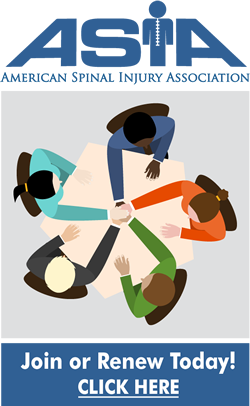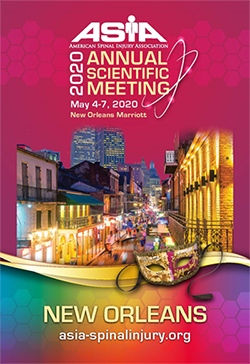Spring 2019 Issue
Health Policy (Advocacy) Committee Survey
CAUTI Quality Measure has reopened for public comment: For those of you who are feeling undue pressure to remove indwelling catheters in inappropriate situations, or who are seeing dangerous practices in non-specialty hospitals that are removing catheters in SCI patients, click this link, then click the “comment” link near the upper right corner of the page to leave a comment. Leaving a comment in your own words is preferable, but the Advocacy Committee has also produced a statement that you can cut and paste into the comments section for those with less time to spend composing:
The NQF is to be commended for its dedication to Quality Improvement in healthcare, as well as its strong commitment to patient-centeredness, consensus-building, and protection of vulnerable populations. Foley catheter removal in patients with Spinal Cord Injury (SCI) who are unable to void can have extremely negative consequences on genitourinary system health and function and can place patients at undue risk of life-threatening outcomes such as renal failure and autonomic dysreflexia. For those who cannot self-catheterize, there are significant implications for independence, quality of life, and transition from hospital to home. These complexities are acknowledged in clinical practice guidelines from the Consortium for Spinal Cord Medicine, the American Urological Association, and the CDC. As a healthcare professional who cares for patients with SCI, I am requesting that the NQF work to create better alignment between the financial incentives and SCI-specific recommendations in evidence-based clinical practice guidelines.
Take a Survey: You can click here to take an online survey that was developed to better understand the prevalence of indwelling catheter removal in the early acute phase of SCI, the implementation of safeguards to protect patients from Autonomic Dysreflexia and other sequelae of bladder overdistension, and the prevalence of adverse events related to this practice.
JOIN OR RENEW WITH ASIA TODAY!
PLAN NOW!
ASIA 2020 Annual Scientific Meeting
May 4-7, 2020
New Orleans Marriott

 to Home Page
to Home Page

